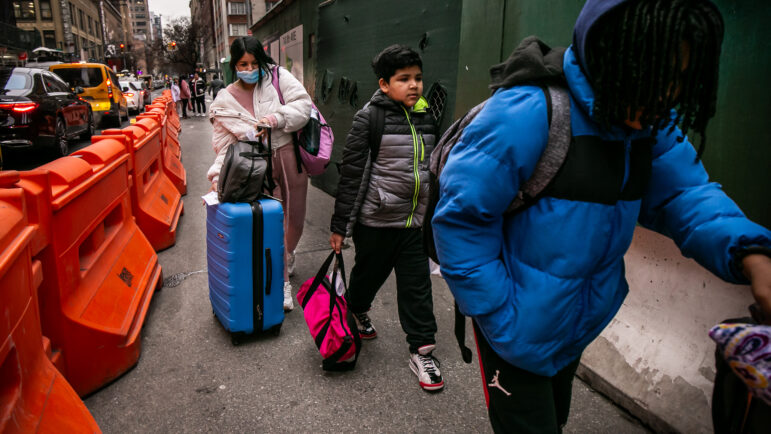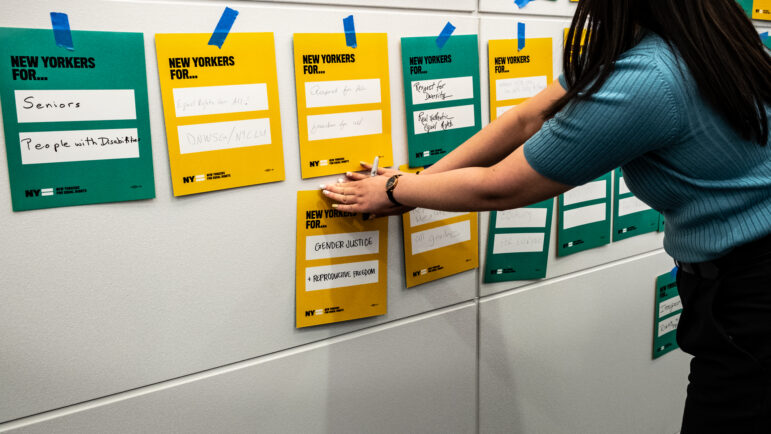An effort to get more affordable housing in Park Slope resulted on Wednesday in a deal that will likely continue the up-scaling of the Brooklyn neighborhood.
An agreement made among the City Council, the Bloomberg administration and the City Planning Commission would allow developers to build 12-story apartment complexes along a 20-block stretch of Fourth Avenue.
To try to encourage developers to include affordable apartments in these buildings, the city plans to set aside for five years $6 million in subsidies. Under the plan, the department of Housing Preservation and Development would give a developer $45,000 for each apartment he creates for low- or moderate-income tenants. (The exact income levels have yet to be determined.) That unit would remain affordable for an average of 20 years, after which the building owner could raise the rent to market rates.
While the program is strictly voluntary, Mayor Bloomberg, Council Speaker Gifford Miller and other supporters of the plan expect that 133 of the 644 new apartments built in the area will be affordable. The mayor also expressed confidence that the plan would attract about $16 million in private investment.
“We think we’ve established a framework that sets the stage for other rezonings in neighborhoods from Greenpoint, Brooklyn, to the far west side of Manhattan to Hunters Point in Queens that in total can produce tens of thousands of units of housing,” said Bloomberg in a housing policy speech last Thursday.
Some affordable housing advocates are not so sure, however. “Being left to the private sector, the plan will only work if the market place is not strong,” said Ron Shiffman, director of the Pratt Institute Center for Community and Environmental Development and a 34-year Park Slope resident. “If the market sustains itself as it has, I doubt people will opt into the plan.”
He laments that some City Council members dropped their campaign for a more certain way of creating affordable housing. Members David Yassky, Bill de Blasio and Sara Gonzalez had proposed implementing inclusionary zoning in the area, which would have required developers to make a proportion of their 8- to 12-story buildings affordable.
“We challenged ourselves and the administration to come up with a plan in which 20 percent of the new units developed as a result of the rezoning would be affordable,” de Blasio said.
But Bloomberg and the New York City Planning Commission argued that in Park Slope, inclusionary zoning would actually deter development. While it has worked in parts of Manhattan, they argue, Brooklyn’s population is not dense enough to support it, and the area’s housing market could not demand rents high enough to make up for the low rents of the affordable apartments.
After realizing that their proposal would not go through, the council members conceded to the $6 million-capital commitment.
“This is a big first step, but we still have a long way to go and need to push forward even more,” said Yassky.
At least one large Brooklyn developer, who asked that his name not be used, predicts it will work: Small developers with few financing options will find the program’s subsidies attractive, he said, and bigger developers might see the incentives as a way to mitigate the risk of building in a new area.
Shiffman hopes he’s right: “We should reinvigorate Fourth Avenue, but not on the backs of low-income families.”








